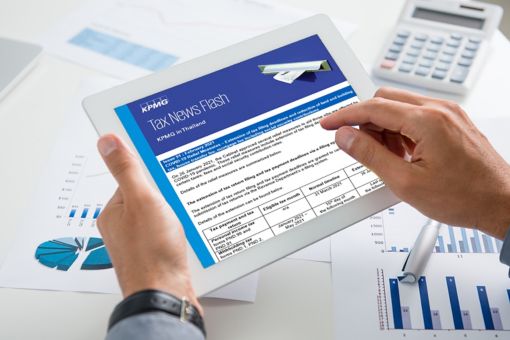Due to the COVID-19 situation, the Government as adopted many measures to control the outbreak of the disease. One of the measures, is unlocking certain limitations of the previous e-meeting law which required, among others, that at least one-third of the quorum to be present at the same place and the attendees must be in Thailand. These requirements were seen as impractical due to nature of the disease and were not consistent with the “social distancing” theme.
As such, on April 18, 2020, the Thai Government issued the Emergency Decree on Electronic Meetings B.E. 2563 (2020) effective from April 19, 2020 which replaces the previous law, thereby, easing the limitations and allowing entities including companies (both private and public companies) to be able to hold virtual board of directors and shareholder meetings without the physical attendance requirement from anywhere.
Key summary of the new e-meeting law is as follows:
- This law applies to meetings that are required by law and conducted via electronic means such as board of directors and shareholder meetings of companies but excluding certain specific meetings such as meetings of the House of Representatives, Senates and National Assembly, etc.
- All attendees can attend via electronic means from anywhere and no physical attendance is required.
- Invitation notices and supporting documents may be sent via e-mails and the meeting organizer must maintain copies of such notices and documents as evidence.
- The meeting organizer must:
1) arrange for the attendees to verify their identities via electronic means before joining the meeting, and
2) arrange for the attendees to be able to cast votes both by open voting and secret voting, and
3) prepare written minutes of the meeting, and
4) record the audio or audiovisual of every attendee for the entire meeting in the form of electronic data except for secret meeting, and
5) keep the electronic traffic data (e.g. IP Address, date and time of entry) of every attendee as evidence. - The meeting must be held in compliance with the standards for maintenance of security for electronic meetings prescribed by the Ministry of Digital Economy and Society (MDES).
Do companies need to amend their articles of association?
Based on the clarifications of the Department of Business Development, the Ministry of Commerce re: meetings via electronic means of registered partnerships, private companies, public companies, trade associations and chambers of commerce dated 24 March 2020, entities whose articles of association do not specifically restrict or prohibit meetings via electronic means shall be able to convene their meetings via electronic means in accordance with the Announcement of the National Council for Peace and Order No. 74/2557 (now replaced by the new Emergency Decree). That is, companies (both private and public companies) should be able to hold e-meetings without having to amend their articles of association so long as their articles of association do not specifically restrict or prohibit meetings via electronic means. However, if their articles of associations prescribe specific requirements of the previous law such as requiring at least one-third of the quorum to be present at the same place, then these articles of association may need to be amended so that holding e-meetings under the new Emergency Decree do not contradict with their own articles of association.
What about shareholder meetings after the outbreak?
Where the disease still spreads and the Government’s prevention orders are still enforced, companies may be able to hold complete virtual shareholder meetings (if systems allow). However, questions can arise once the COVID-19 situation is subsided and the orders are lifted. This is because companies will need to treat their shareholders equally and some shareholders may not have access to online system. As such, it is possible that in the near future, we will see more of hybrid general meetings (i.e. having both physical and virtual meetings) for companies that have a large number of shareholders such as listed companies.
How can we help you?
We at KPMG Thailand understand that the current outbreak may have affected your normal business operations including holding of regular board and annual general meetings. We can provide you with more detailed and practical advice on the e-meeting arrangement for legal purpose and also assist you in preparing and/or reviewing necessary legal documents to support the e-meeting upon request.
In addition, as the Government has provided many reliefs and measures to combat the business challenges in the time of COVID 19, please visit our website for legal and tax insights and updates on the COVID-19 relief measures. Please reach out to us for further information on the relevant issues.
Connect with us
- Find office locations kpmg.findOfficeLocations
- kpmg.emailUs
- Social media @ KPMG kpmg.socialMedia




